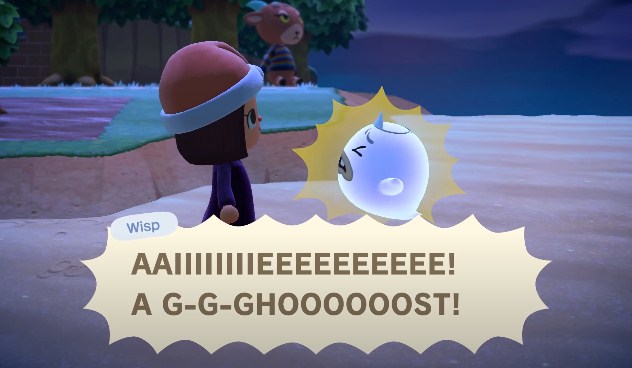
Tips for Localizing Humor in Games to Keep It Amusing When Going Global
The localization of humor in games has not been extensively studied. Yet, humor plays an essential role in gaming and presents challenges during translation processes. It serves as an excellent tactic to capture and maintain players’ interest. Whether a game is inherently funny or sprinkled with clever puns during conversations, the goal is for players from diverse cultural backgrounds and languages to share in the fun and experience the joy that laughter brings. Translating short jokes across languages, particularly between linguistically diverse families like English and Korean, can be tricky for game developers and their localization teams. However, with an understanding of how to adapt humor across cultures and the assistance of a creative team of native-speaking translators, you can ensure that every version of your game resonates humorously, offering enjoyable and accurate joke renditions that appeal to international audiences.
Exploring the Structure of Humor in Games
To understand how humor in games is crucial, it starts with identifying the different kinds of humor prevalent in games, such as irony, parody, and jokes. Here’s the explanation:
1. Irony

Irony involves scenarios that are humorously contradictory to what one might anticipate. A case in point is in Animal Crossing: New Horizons, where a character named Wisp, who paradoxically is a ghost, exhibits a fear of ghosts. This unexpected twist adds a layer of humor to the character and the game.
2. Parody

Parody is commonly used across various media to imitate a person or scenario humorously. In video games, developers often create parodic games that satirize established video game conventions and occasionally other media types. A prime example is found in the turn-based RPG "South Park: The Stick of Truth," where the developers comically depict features typical of the well-known fantasy role-playing game "Dungeons & Dragons."
Additionally, parody games can sometimes transcend their initial inspirations to become standalone phenomena recognized on their own merits. For instance, the point-and-click adventure game "The Room Tribute" is based on the film "The Room," seen through the eyes of its main character, Johnny.
This game not only recreates the film’s setting faithfully but also allows players to correct the movie’s inconsistencies. It has since emerged as a seminal example of iconic parody Flash games. However, localizing parody games can be fraught with challenges. Often, the original material being parodied may not be well-known in the target market. To circumvent this issue, thorough research is necessary: verify if the original theme has been adapted into the target language and determine if there is an existing fan base for the original content in the new market.
3. Jokes

When we talk about humor in games, especially jokes, we are referring to short stories, observations, or ideas that culminate in a punchline and elicit laughter. Jokes can take various forms, such as observational ("Have you ever noticed..."), anecdotal (such as a personal experience recounted by the teller), situational, or even self-deprecating.
Youtube / Gamer’s Little Playground
For instance, in "The Last of Us: Part II," Joel's joke, "What is the downside to eating a clock? It’s time-consuming," was creatively adapted for French and Portuguese audiences. In French, the joke was modified to, "Tu sais quel est le comble pour une horloge? C’est de devoir tuer le temps," which translates to "What’s the worst thing for a clock? It’s having to kill time." In Portuguese, it became, "Por que é ruim jogar relógio fora? Porque é perda de tempo," translating to "Why is it bad to throw away the watch? Because it’s a waste of time."
This adaptation ensures that the humor transcends linguistic barriers, making the jokes resonate with audiences in various languages as effectively as in the original.
Essential Skill for Localizing Humor in Games
It's widely recognized that a translator must be a native speaker of the target language to produce natural, polished texts that reflect a profound cultural insight. However, to identify the humor intended for translation in the first place, the translator must also possess an intimate familiarity with the source culture.
Alongside a comprehensive grasp of the spoken language, including idioms and slang, a vibrant imagination, and linguistic inventiveness, here are the skills a translator must possess to localize humor in games:
1. Skill to Write in Clear and Succinct Language
Lengthy and awkward phrasing detracts from the readability and rhythm of humorous texts. The ability to select words purposefully, craft sentences meticulously, and adhere to proper grammar is crucial for maintaining a compelling writing style.
2. Understanding of Comedy
While there are courses available that teach stand-up comedy, burlesque, and slapstick, engaging in such activities not only can rejuvenate translators but also enhance their professional prowess indirectly. Moreover, a sense of humor can be nurtured from the comfort of one's home by indulging in various forms of entertainment, including films, sitcoms, TV shows, comics, books, manga, etc.
3. Insatiable Curiosity and Adept Research Skills
While an innate sense of humor can facilitate the quick retention of jokes in the original text, mastering the translation of humor requires considerable research and practice. As the adage goes, practice makes perfect.
4. Playtesting and Iteration
Playtesting translated content is essential to gauge its effectiveness and ensure that jokes land as intended. Translators should be open to feedback and willing to iterate on their translations to enhance the humor and overall player enjoyment.
Tips for Retaining Humor in Games Through Localization
Similar to any other product, games have distinctive features that require careful consideration during localization. Due to their primary goal of providing entertainment, games frequently incorporate humor, cultural allusions, and enjoyable surprises. So, how to retain the authentic humor in games throughout the localization process?
1. Determine the Extent of Adaptability
As a developer, you can assist translators in completing their tasks. Begin by recognizing the level of adaptability concerning humor: is it a fundamental aspect of the game? Can it be omitted on occasion? Does it form part of a larger, specific scene or scenario? Are there elements specific to certain cultures? Then, be sure to carefully consider cultural nuances, as they are vital not only for maintaining the game's humor but also for protecting the reputation of your product. Remember, what may appear innocuous in one culture could be offensive in another.
2. Provide Context
Subsequently, furnish translators with contextual explanations. While proficient in the target language, they may lack familiarity with the source language's nuanced humor or idiomatic expressions that do not directly translate. This guidance can greatly assist translators who are fluent in the target language but not in the source language.
3. Equip the Translators with a Complete Localization Kit
The next tip for localizing humor in games is to provide the translators with an extensive localization package, including in-depth character profiles, to enhance their comprehension of the context. These profiles encompass various details such as character visuals, gender, age, interpersonal connections, and more. By delving into the characters' backgrounds, translators can craft engaging lines and clever dialogue more effectively.
Simultaneously, bear in mind that what may be deemed a light-hearted and harmless joke by some could be deemed offensive, embarrassing, or even illegal by others. Given the sensitive nature of humor, it's prudent to scrutinize how the translations align with the game's content and influence its overall reception.
4. Double-Check
Last but at least, double-check how the translations integrate with the game and impact its overall atmosphere. Conducting a linguistic quality evaluation serves as the final step in the localization process. It's imperative to verify that no translation error compromises the gaming experience.
Conclusion
Based on the preceding explanations, it can be inferred that adapting humor in games is not an easy or swift endeavor. Rather, it presents itself as a multifaceted and demanding undertaking. Despite its difficulties, translating humor serves as an engaging and imaginative venture, reflecting your concern for players conversant in your intended language. Keep in mind that your dedication to offering a universally enjoyable experience to the worldwide audience will consistently yield allegiance and, in the end, an enhanced lifetime worth.
Transforming laughter across cultures is no simple task, but with our dedicated team, it becomes an immersive and rewarding journey. Elevate your game's global appeal and secure lasting player loyalty today. For you seeking to ensure that no humor or culturally sensitive jokes are overlooked in their game, check out Digital Trans-Asia! With our dedicated team, elevate your game's global appeal and secure lasting player loyalty today.